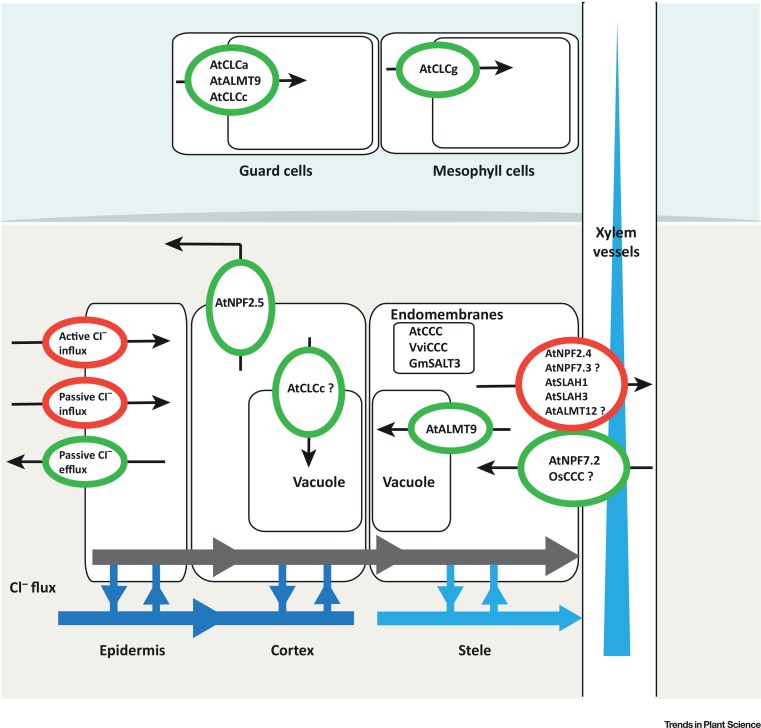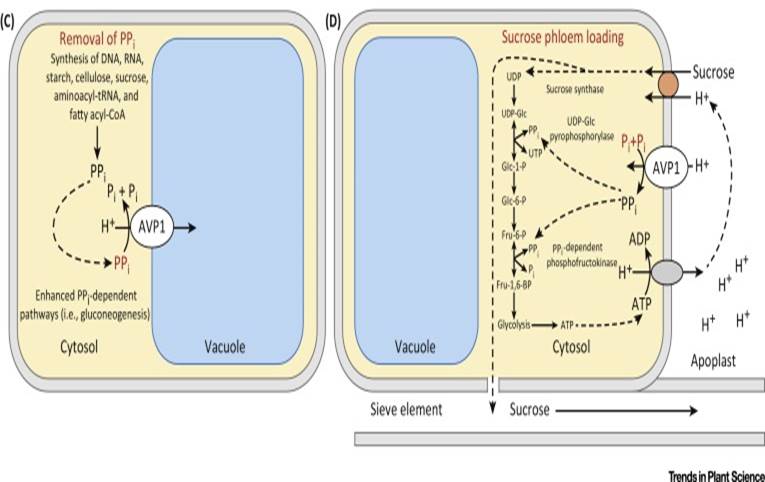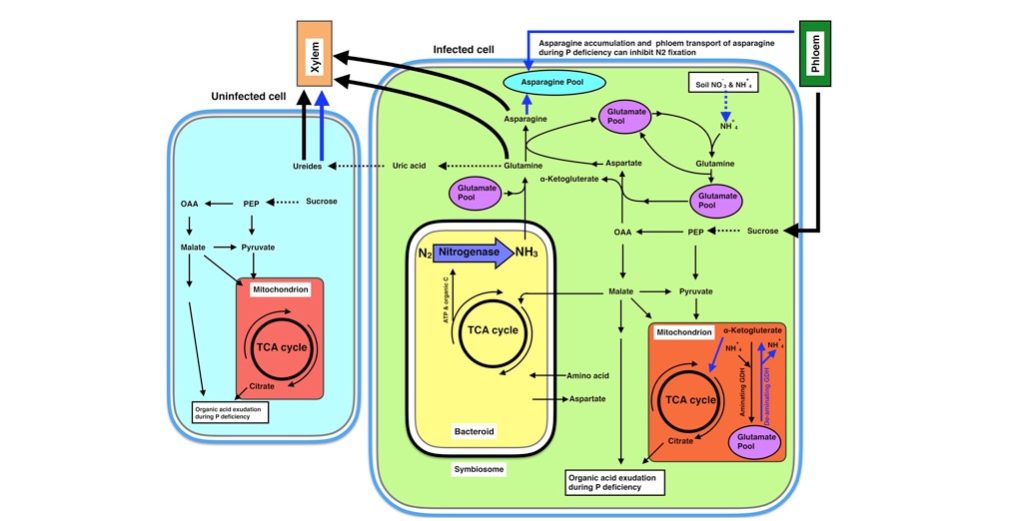
Review: Chloride on the move ($)
Plant Science Research Weekly, ResearchSaline soils are an ever growing problem, whether due to seawater incursions, for example in Bangladesh, or due to the rising water table in Australia. Salinity is harmful in three ways: non-specific osmotic effects, excess Na+, and excess Cl–. Of these, chloride has received the least attention. Li…

Low Phytate Rice Grains
Plant Science Research Weekly, Research0 Comments
/
Phosphorus (P) is an important macronutrient for crop productivity. In cereal crops like rice, about 60-85% of total plant P is allocated to grains and therefore removed from fields at harvest. Furthermore, the major form of P in the grains is phytate (C6H18O24P6), which cannot be digested by humans…

Review: The many roles of AVP1, a H+-PPase ($)
Plant Science Research Weekly, ResearchThe AVP1 gene encodes a proton-pumping pyrophosphatase (H+-PPase) localized to the vacuolar membrane, which means that it pumps H+ into the vacuole using energy stored in pyrophosphatase (PPi). The direct consequences of its action are the acidification of the vacuole and the removal of PPi from the…

Review: Adaptive strategies for N metabolism in P deficient legume nodules ($)
Plant Science Research Weekly, ResearchLegume nodules fix N, but their function has a high requirement for P, making nitrogen-fixation highly sensitive to P deficiency. Valentine et al. review how P limitation affects nodule function and also how nodules respond and adapt to P deficiency, drawing largely on studies of Virgilia divaricata,…

Review: Transport and homeostasis of K & P ($)
Plant Science Research Weekly, ResearchNitrogen (N), phosphorus (P), and potassium (K) are the three macronutrients required in highest amounts for plant growth. N is abundant in the atmosphere, therefore plentiful if we overlook the energetic costs of converting N2 to usable form. By contrast, K and P are present in limited amounts in the…

Calcium Deficiency Triggers Phloem Remobilization of Cadmium
Plant Science Research Weekly, ResearchCadmium (Cd) is among the most toxic heavy metal to humans. Contamination of Cd in soils poses a serious threat to both crop productivity and human health in many parts of the world. Understanding the molecular mechanisms of Cd transport process will help in developing plants for soil remediation and…

Iron acquisition and saline-alkaline tolerance in rice
Plant Science Research Weekly, ResearchSoil saline-alkalization is a major abiotic stress to agriculture worldwide, causing considerable damage to crop growth and loss of crop productivity. In alkaline soil, iron availability to plants also becomes very limiting. This paper explores the physiological and molecular mechanisms of rice plant’s…

J. Exp. Bot. Special Issue: Making Connections: Plant Vascular Tissue Development
Plant Science Research Weekly, ResearchThe Journal of Experimental Botany has a special issue on vascular development that features several outstanding review and opinion articles. Topics include Evolution of Conducting Cells, Regulation of Vascular Cell Division, overviews of hormones, peptide signals, receptors and transcription factors…

Best of 2016: Top Topics in The Plant Cell journal
Blog, Research, Research Blog, The Plant CellWe’ve highlighted some of the Plant Cell papers that were widely shared, liked, blogged, retweeted and otherwise garnered high-levels of attention this year. Perhaps you can use some holiday-season quiet time to catch up on those you missed.
Reviews and Perspectives
Creating order from chaos: epigenome…

